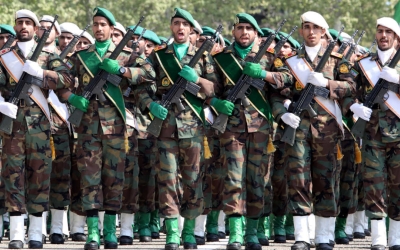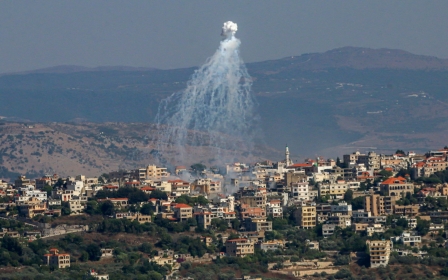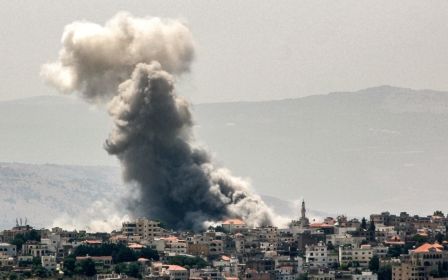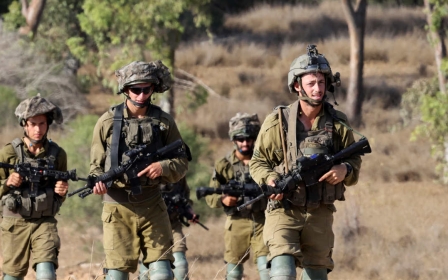White House says Iran still 'poised' to attack Israel as top general says war fears have 'eased'
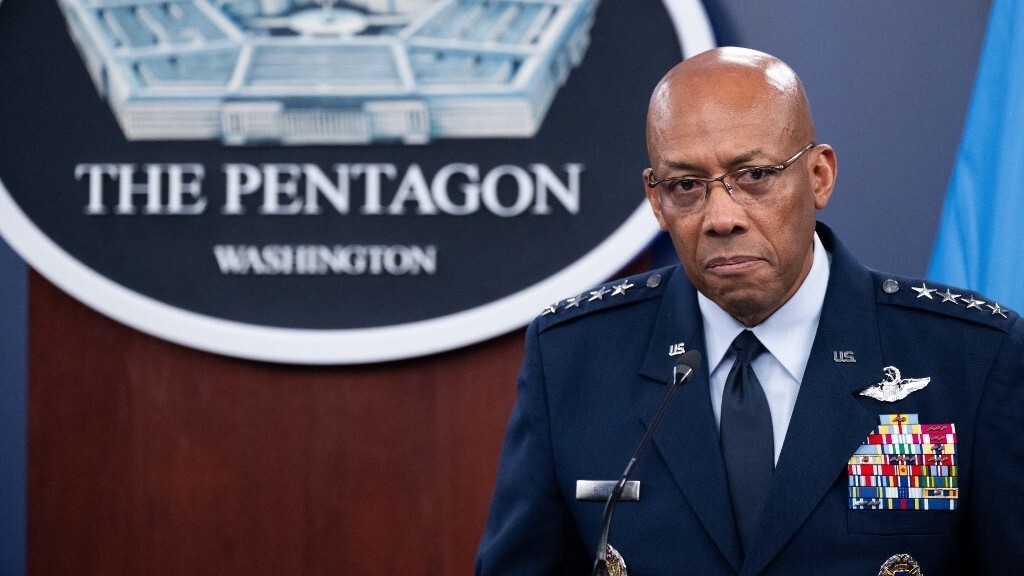
The US’s top general said the risks of a regional war erupting had eased after an intense exchange of fire between Israel and Hezbollah, even as the White House continued to say Iran was "poised" to attack.
Air Force General Charles Q Brown, chairman of the Joint Chiefs of Staff, told Reuters on Monday that the chances of a regional war erupting had “somewhat” eased, joining Israel and Hezbollah in seeking to draw a line under the latest round of tensions that almost brought the Middle East to the brink of a regional conflict.
At the same time, the White House said it still believed Iran was prepared to attack Israel, warning that such a move would prompt US intervention.
“We believe that they are still postured and poised to launch an attack, should they want to do that, which is why we have that enhanced force posture in the region,” White House national security spokesperson John Kirby said on Tuesday.
Brown arrived in Israel on Sunday, hours after Israel launched a series of overnight strikes on Hezbollah and the Iran-backed group fired hundreds of rockets into Israel.
New MEE newsletter: Jerusalem Dispatch
Sign up to get the latest insights and analysis on Israel-Palestine, alongside Turkey Unpacked and other MEE newsletters
The region had been on a knife edge for more than three weeks as it braced for Hezbollah and Iran to retaliate for the killings of Hamas leader Ismail Haniyeh in Tehran and senior Hezbollah military commander Fuad Shukr in Beirut.
Brown did not reference any specific US intelligence that led to his assessment, but both Israel and Hezbollah made statements that analysts say suggest they were pulling back from escalating.
Analysts previously told MEE that Israel's twin assassinations appeared to put Hezbollah and Iran on the back foot, underscoring Israel's intelligence penetration of their operations and escalation dominance.
“What we knew before the assassinations of Haniyeh and Shukr has become even clearer. Hezbollah and Iran cannot afford all-out war with the US and Israel because they are weaker,” Thomas Juneau, an Iran expert at the University of Ottawa’s Graduate School of Public and International Affairs, told MEE.
'Response is over'
“For now we consider that the response is over, and the country can take a breath,” Hezbollah chief Hassan Nasrallah said on Sunday after Hezbollah’s attack, adding that the group “will now reserve the right to respond at a later time if the results of Sunday's attack aren't sufficient”.
The region is still waiting for Iran’s response to the killing of Haniyeh in Tehran, but the Islamic Republic also appears to be tamping down expectations, as it claimed Hezbollah’s attack on Sunday as a victory for the so-called "axis of resistance".
“Despite the full backing of its supporters, including the United States, Israel has lost its deterrent power and ability to predict the time and place of even a limited and calibrated attack,” Iran’s foreign ministry spokesman Nasser Kanaani wrote on X.
There was little evidence of any serious damage from Hezbollah’s strikes. One Israeli soldier was reportedly killed by fragments of Israel’s own missile receptors and two were wounded.
According to Lebanese media reports, Brown is also expected to travel to Lebanon.
US officials have been trying to contain the fighting between Hezbollah and Israel. The US considers Hezbollah a terrorist organisation and instead passes messages to Lebanese politicians who talk to Hezbollah.
Israel’s killing of Shukr, Hezbollah’s top military commander, appeared to have poisoned relations between Hezbollah and the Biden administration’s traditional troubleshooter on Lebanon, Amos Hochstein.
Al-Akhbar news reported that Hochstein had misled Hezbollah by suggesting to Lebanese officials in talks with the group that Israel would not attack Beirut last month.
A senior Arab official briefed on Hochstein’s messaging previously told MEE the US warned Hezbollah that Israel would launch strikes in the east and south of Lebanon in retaliation for an attack in the Israeli-occupied Golan Heights, but would stop short of a direct attack on Beirut.
Hours later, Shukr was killed in a Hezbollah stronghold in Beirut.
The US is a top donor to Lebanon’s beleaguered Armed Forces, which is outgunned and outmanned by Hezbollah. The US wants the Lebanese military to eventually deploy to the UN-demarcated blue line between Lebanon and Israel as part of a plan to de-escalate tensions.
Hezbollah, which continues to exchange daily fire with Israel, says it will only halt attacks if a ceasefire in Gaza is reached. The fighting has displaced around 90,000 Israelis and a similar number of Lebanese.
Middle East Eye delivers independent and unrivalled coverage and analysis of the Middle East, North Africa and beyond. To learn more about republishing this content and the associated fees, please fill out this form. More about MEE can be found here.


